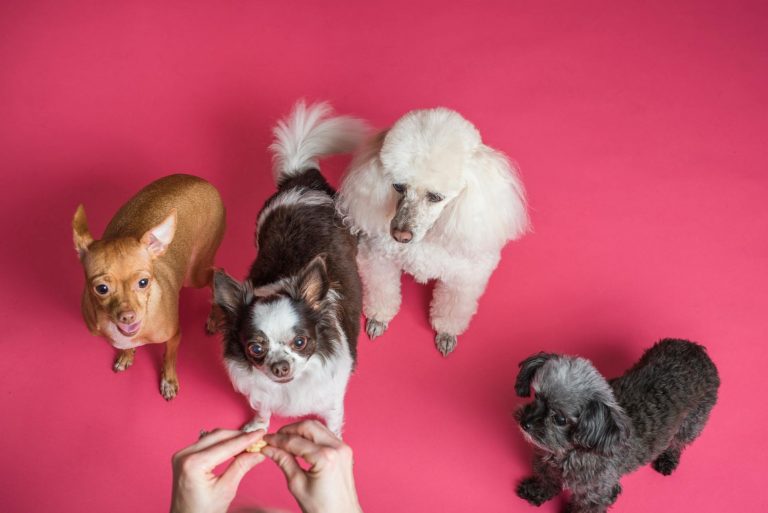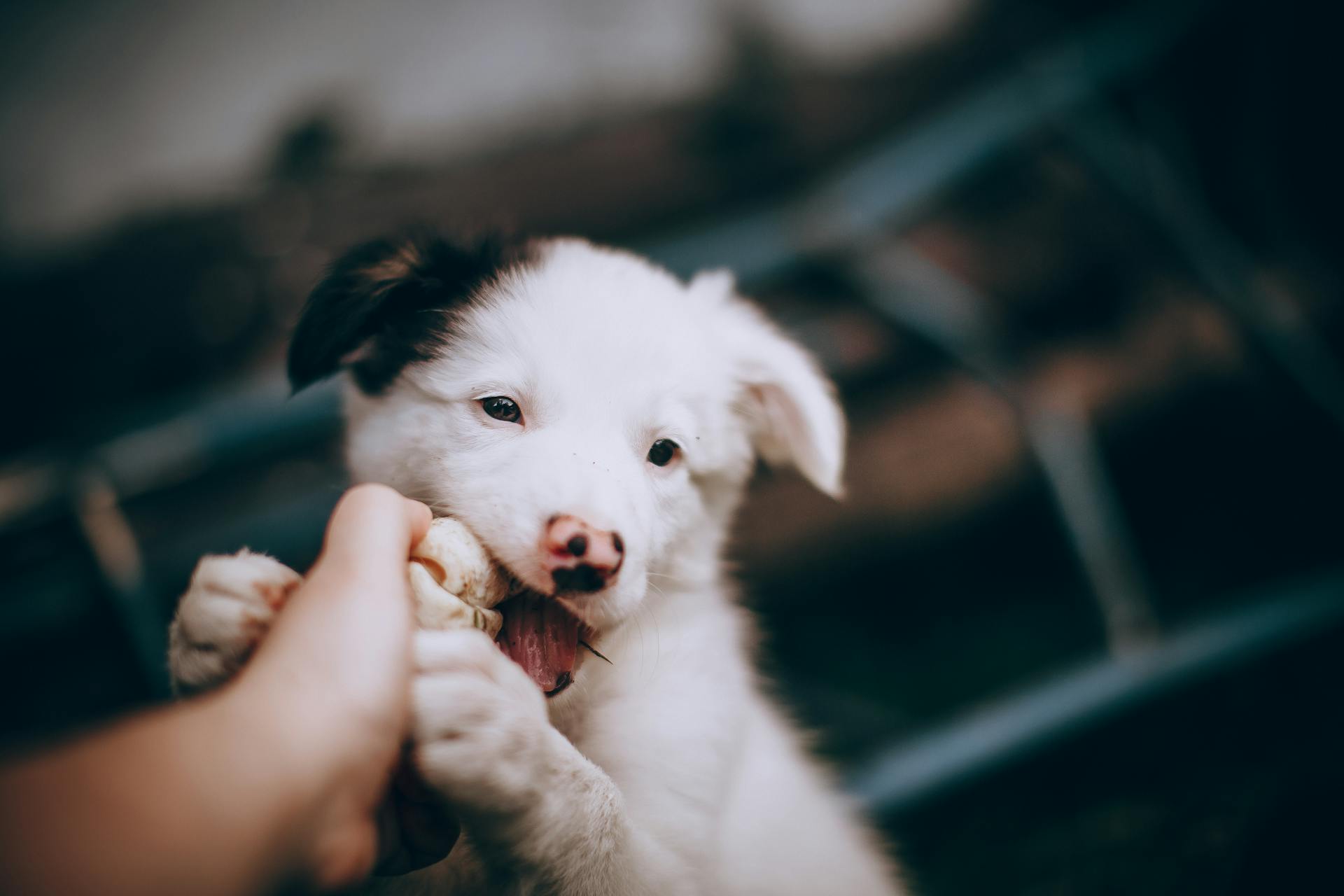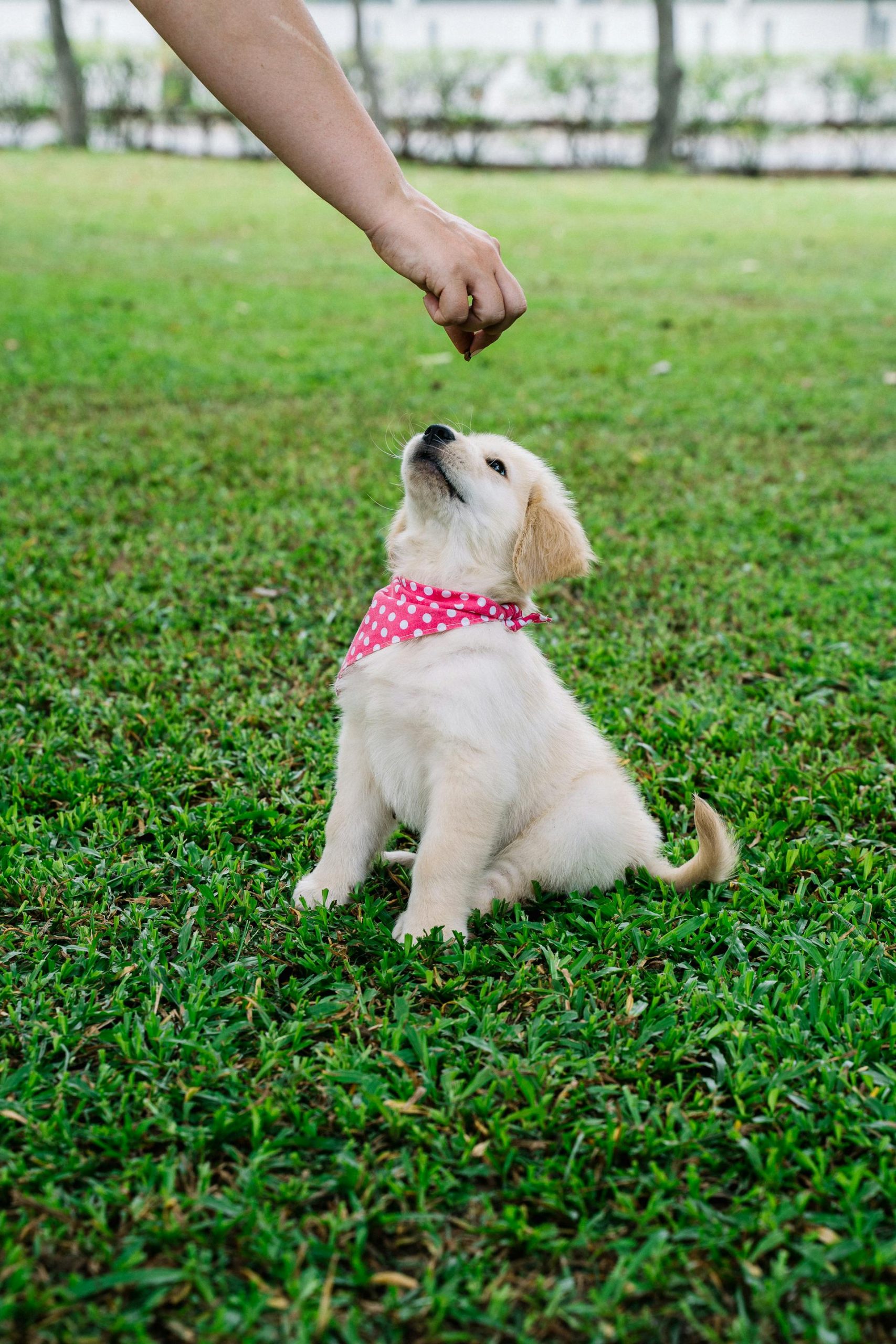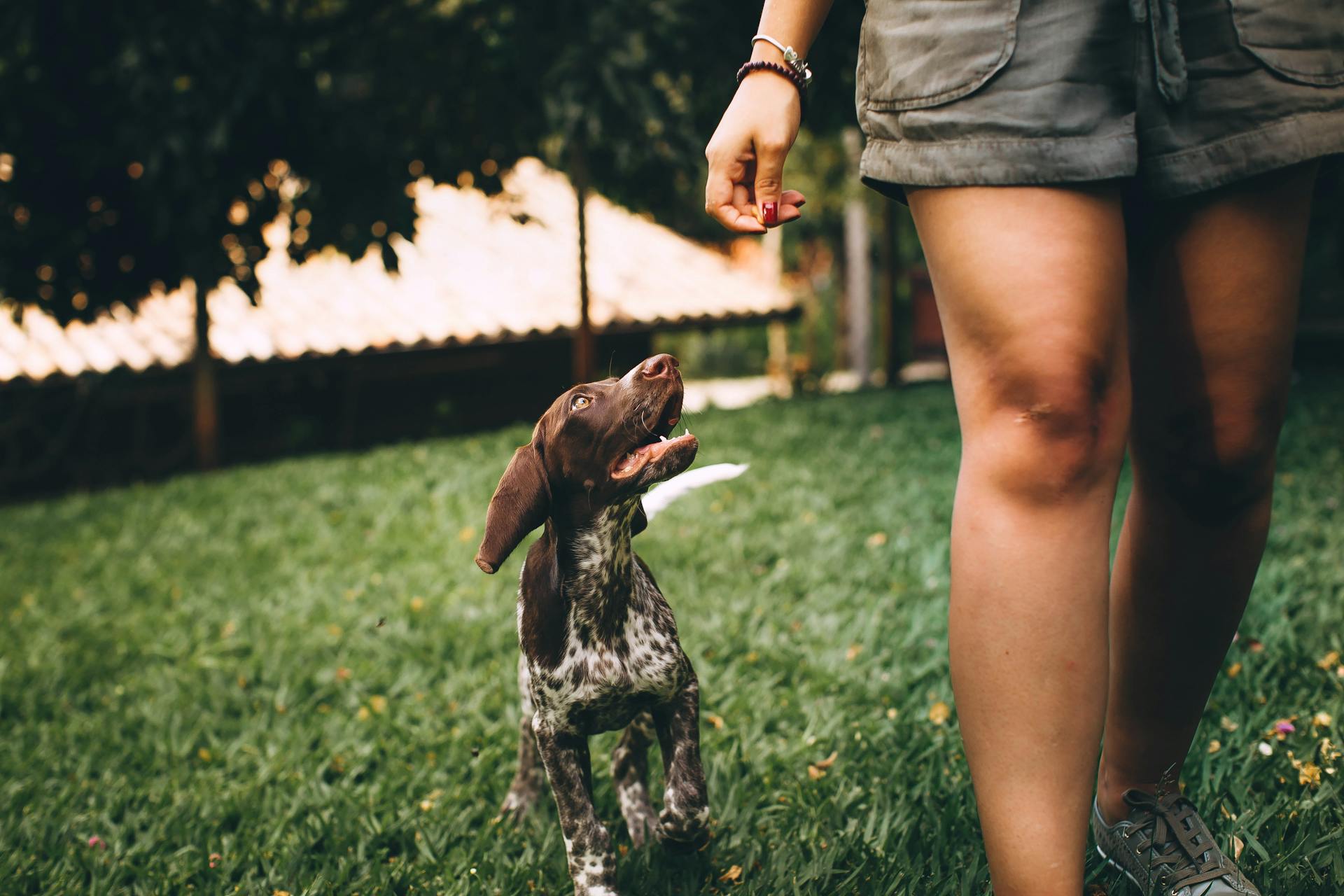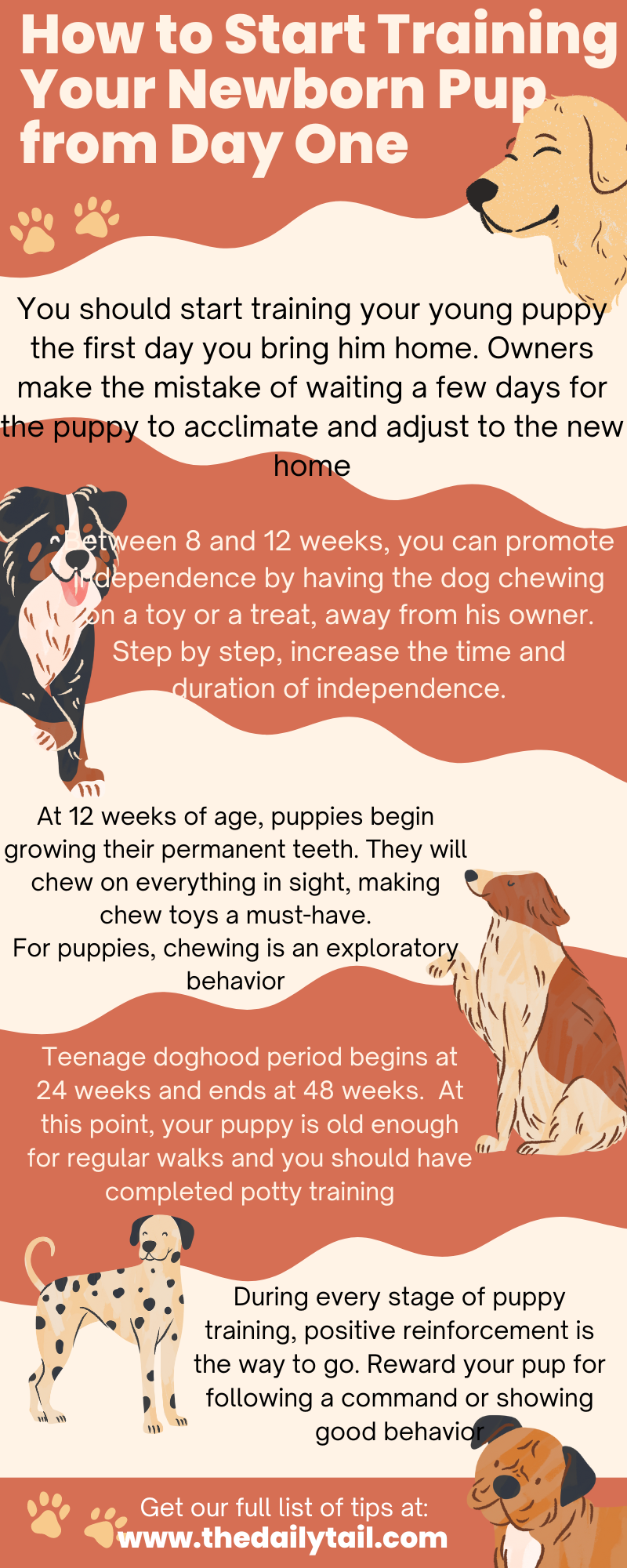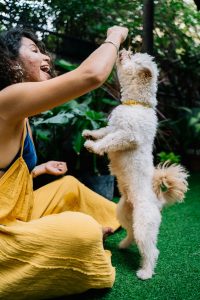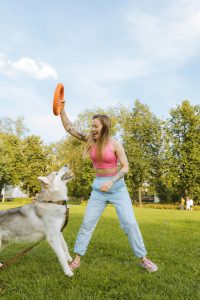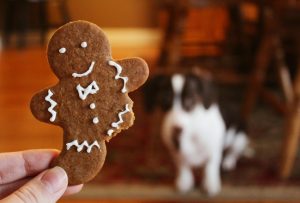Few things in life bring more joy than watching a puppy grow. Whether you are a first-time dog owner or a seasoned pet parent, the road can be challenging. To help you know what to expect, we have compiled a list of information about how to train a newborn puppy.
You should be on action from day one, and pay attention to behavior changes in your puppy. We have divided the puppy development stages by weeks, as your new puppy will change his behavior phases.
When to start with puppy training
You should start training your young puppy the first day you bring him home. Pet parents make the mistake of waiting a few days for the puppy to acclimate and adjust to the new home. But puppy training starts the moment your new dog crosses the porch.
Puppy training can be a bit daunting. But the sooner you begin, the better. Puppies learn at different stages. Yet, for basic commands, you can begin as early as 8 weeks of age.
Between 8 and 12 weeks, you should amp up the socialization part. At this point, your puppy is fully vaccinated and you can allow interactions with people and other dogs.
At 12 weeks, you can start leaving your pup for short periods to prevent separation anxiety down the road.
With that in mind, let’s take a look at puppy training by stages and age.
Newborn Puppies to 3 Weeks of Age
You probably do not have your puppy at home at this time unless it is a puppy from your female dog.
During the first three weeks, puppies are almost devoid of senses. Their eyes, ears, and nose do not work properly and they will not respond to stimuli from humans.
At this point, if you have puppies at home, you should expose them to stimuli that will be part of their later life. For example, if you live in a quiet environment, play some music or add sounds in any way.
During this period, you should play with your puppy to see his personality and preferences. For example, if you play with your hands, and the puppy tries to go nuts, he might bite you. Do not punish the puppy, as it will turn to anxiety and stress. Instead, if you notice your puppy tries to bite you, play with something else, not your hands.
3 to 8 Weeks of Age
After three weeks, puppies begin to open their eyes, their nose begins to work, and their ears develop. Dog behaviorists and professional dog trainers call this the “awakening phase”. By week four, puppies should be able to walk.
Their senses begin to mature and the dog can reach for environmental stimuli. Socialization starts at this point. Puppies have a high fear threshold. They are not afraid of anything.
You can expose young puppies to anything that will be part of their normal environment later on. But always make sure there is careful supervision.
During this period, pay attention to careful interaction. Keep your handling and interaction below the threshold of fear. If you notice your puppy is afraid of something, switch it up. You should not socialize your young puppy with scary things.
Instead, gradually expose him/her to the environment. Socialization with other dogs begins with litter mates. The puppy has to go through the full vaccination process before it can interact with outside dogs.
8 to 12 Weeks of Age
Your adorable ball of fluff will become more independent and get the hang of physical coordination. During this period, puppies continue to learn and interact with everything around them.
They are like sponges, soaking up everything. During this period, puppy adoption takes place. Between 8 and 12 weeks, the fear response begins to become pronounced. Waiting too long makes it difficult to acclimate the puppy to a new environment.
During this period, if you get your new puppy, make his experience as positive and comforting as possible.
You can promote independence by having the dog chewing on a toy or a treat, away from his owner. Step by step, increase the time and duration of independence.
Housebreaking also begins at 8 weeks of age, and training at 9 weeks. At this period, negative experiences have an impact on the pup. Take care of him as his mother would.
If you have people over, explain the rules and how to handle the puppy. You do not want someone picking up your pup too quickly and making him scared. Both positive and negative experiences have a long-term mark.
12 to 24 Weeks of Age
At 12 weeks of age, puppies begin growing their permanent teeth. They will chew on everything in sight, making chew toys a must-have.
For puppies, chewing is an exploratory behavior. They are proactive and need stimulation. Provide enough toys for contact and interaction. You can fill toys with food inside to stimulate chewing on particular toys, not on everything in sight.
At 12 weeks of age, you should already begin easy training. Call your puppy with a happy voice. Young puppies follow you everywhere, but at 12 weeks, they are a bit more independent. Use a happy voice to call them and reward them. You can teach recall thanks to positive stimuli when puppies come.
If you begin potty training process, take them out when you know they will go pee. That is every two to three hours, after meals, and when they wake up. Reward going potty outside to help your puppy learn good manners.
You can also begin with crate training, to help your puppy gain independence. Your new pup should get used to staying in the crate. Make it a fun place with chew toys, food, and everything in between.
Do not lock your young dog in the crate and leave him alone. That will not turn into a positive experience and association.
24 to 48 Weeks of Age
This is the teenage doghood period. At this point, your puppy is old enough for regular walks and you should have completed potty training.
It is time for exploration. Allow your dog to sniff the environment when you are outside. It might make the walk boring and slow, but your puppy needs to sniff everything.
As for dog training, you can move to advanced techniques. You can even expose your dog to professional training.
If you want to do working dog competitions, agility competitions, or obedience competitions, 24 weeks of age is the best time to start training.
How to Use Positive Reinforcement
During every stage of puppy training, positive reinforcement is the way to go. When we talk about how to train a newborn puppy, we always talk about creating positive associations and experiences.
Positive reinforcement training means rewarding a pup for following a command or showing good behavior. You can reward with a tasty treat or a favorite toy. The good old praise never disappoints.
Some puppies are not food-motivated. If that is the case, find a toy that will provide stimulation and reward. For example, hunting dogs love chasing something. Use that to your advantage.
You should never use negative reinforcement in puppy training. Even professionals can make a mistake. And if you are an inexperienced owner, this method will make your puppy afraid of you. It can cause further issues like aggressiveness.
Final Words
Dog training sessions should be short and fun during early puppy training. The most important aspect is understanding when their fear threshold begins. Puppies are born without fear, but the moment fear kicks in, you should focus on positive interactions.
Any negative experience can have a long-lasting impact. Try to begin training the moment you bring your new dog home. In the beginning, set the boundaries, and then work on obedience training. Young puppies will follow you everywhere. It is up to you to set the boundaries and help your dog understand how to behave.

